The human race has been producing and consuming alcohol since somewhere between 7,000 and 10,000 B.C. Its earliest forms were a kind of beer and a honey wine called mead. Chances are pretty good that ever since we’ve been drinking, we’ve been getting drunk. However, “drunk” is far from the only word for an overindulgence of alcohol.
The euphoric feeling imparted by ethyl alcohol (also called ethanol) — the kind that’s in everything from PBR to Château Lafite to Pappy Van Winkle, and the only alcohol that’s safe to drink — seems to leave us wanting more. Good judgment tends to diminish as intake increases. Thus we end up drunk — or to put it in more colorful terms, blotto, hammered or sloshed.
Since drunkenness has been part of the human experience for so long, every language seems to have vivid ways of describing it. If you’ve overdone the vin rouge in France, you might be described as mûr (ripe), beurré (buttered) or torché (torched). An overserved German might be called blau (blue), voll (full) or benebelt (dazed). Too much sake or shochu in Japan? You’re probably dei-sui (drunk as mud) with chidoriashi (tottering steps) from too much bero bero (or pero pero) — an onomatopoeic term suggesting the licking of the lips.
Of course, English has more than its share of synonyms for the condition of inebriation. 24/7 Tempo consulted the Oxford English Dictionary, Merriam-Webster, Collins Dictionary and Alcohol.org (the website of American Addiction Centers) to compile a list of 18 of the most common (and colorful) words for getting drunk.
Many of them have the same general meaning, one of devastation, as if one has been attacked with explosives or at least a blunt object. Others speak to a state of immobility or general uselessness. That might not sound so bad, but it’s worth remembering that the World Health Organization has recently decreed that no level of alcohol whatsoever is without potentially serious effects on our health. (To discover where people drink the most, read about the 25 booziest countries on earth.)
Blitzed
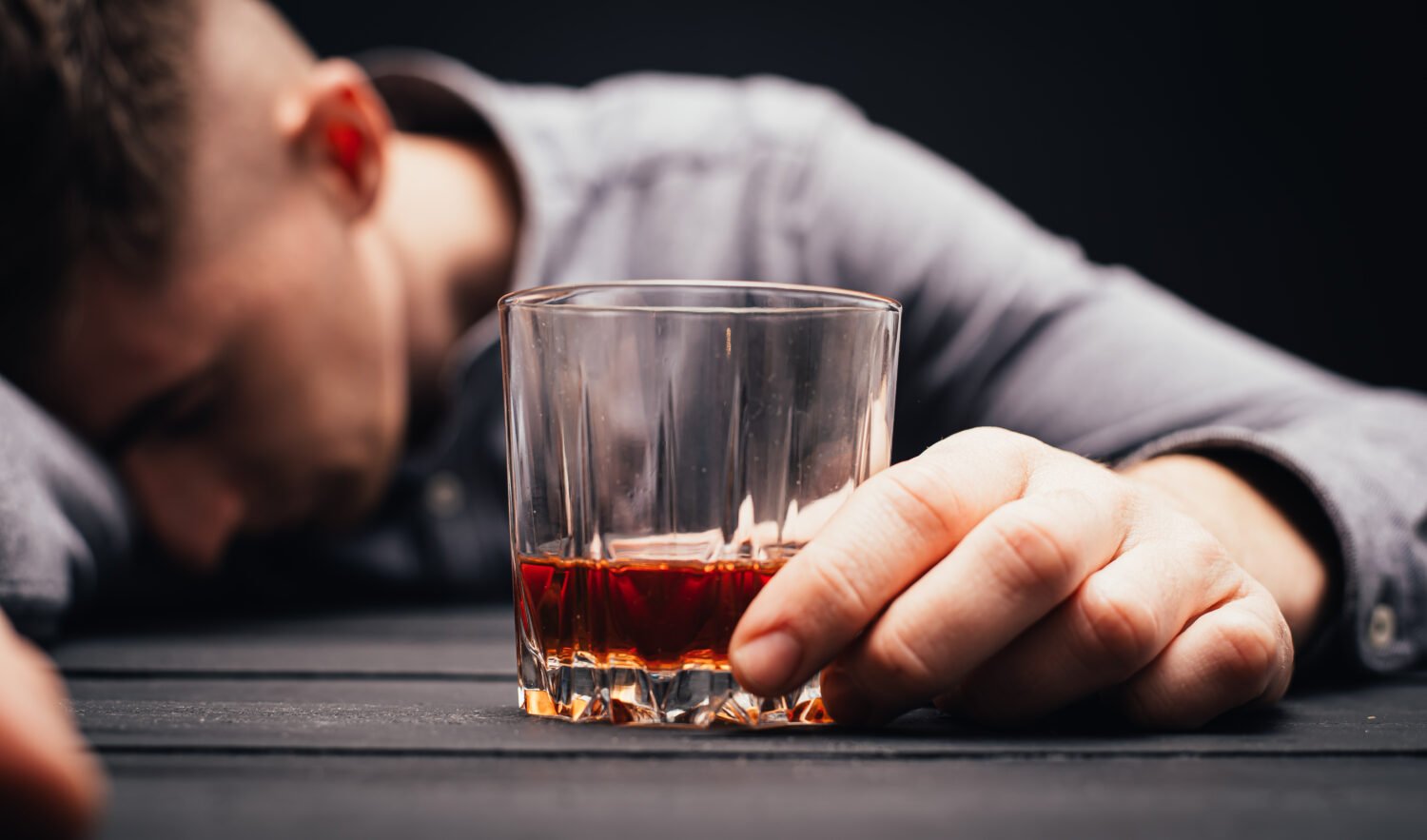
Grown-ups should know how to pace themselves.
Blitz was the name given to the devastating German bombing and rocket attacks on the U.K. during World War II. The term is short for “blitzkrieg” — “lightning war” in German. Drinkers who attain this state might well feel as if they’d been on the receiving end of such a campaign of destruction, at least metaphorically.
Blotto
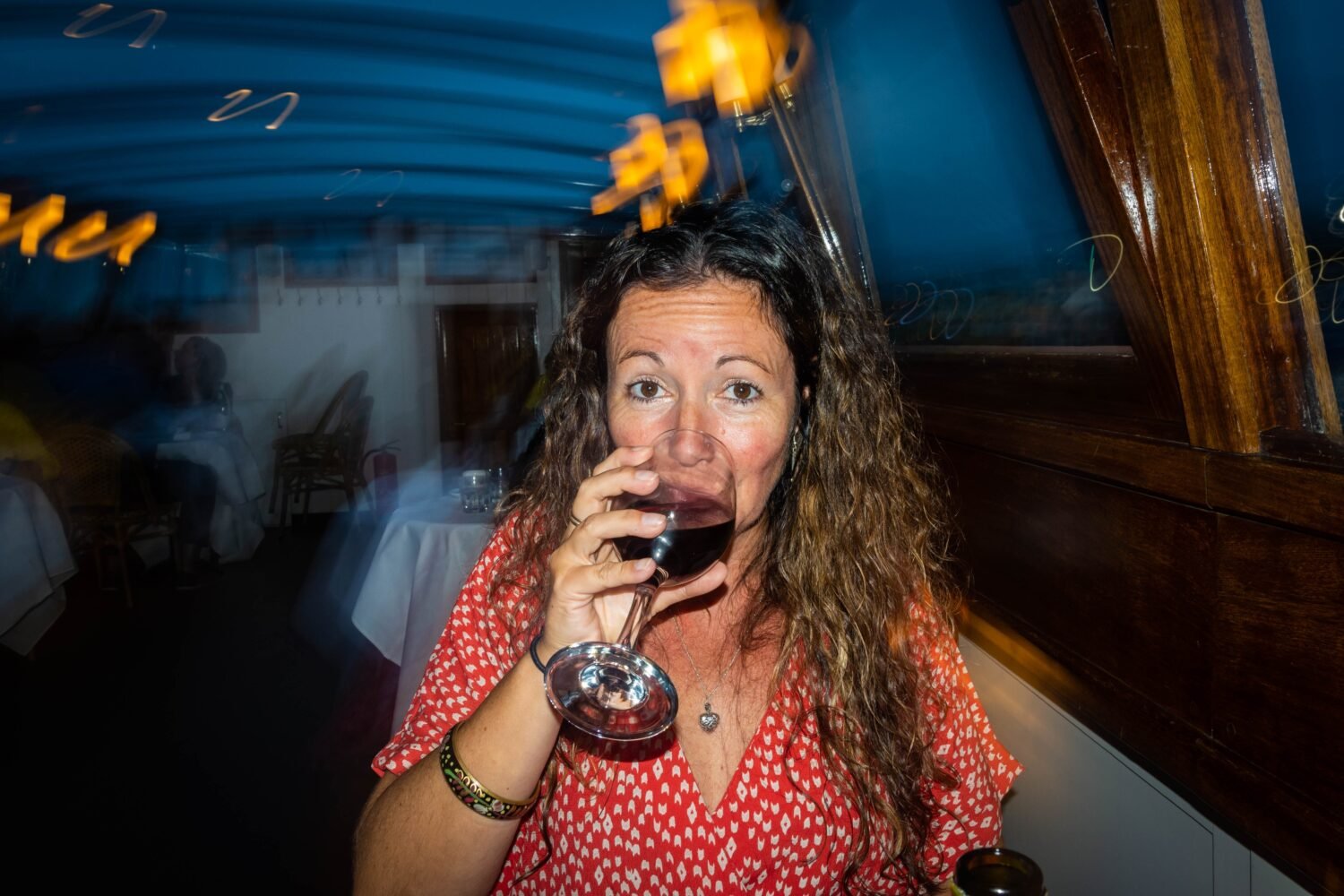
Sometimes you should just stay home.
The term apparently derives from “blot,” as in a stain. The Oxford English Dictionary dates its first usage from 1917 when it was given as a synonym for “drunk” along with “tanked to the wide,” “well sprung” and “up the pole.” A few years later, a British magazine story described a fellow as being “in a state somewhere between ‘blotto’ and ‘blithero-blotto.’”
Bombed
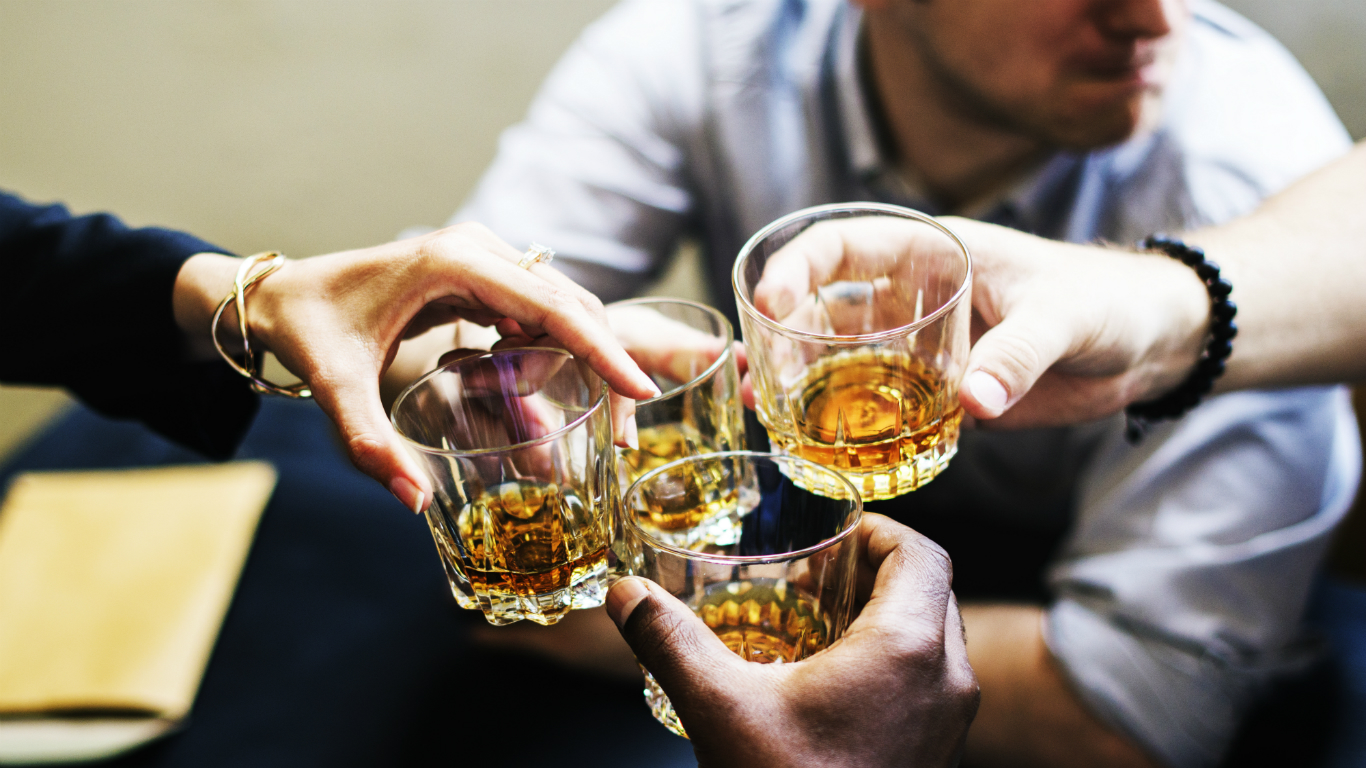
See “blitzed,” above.
Fried
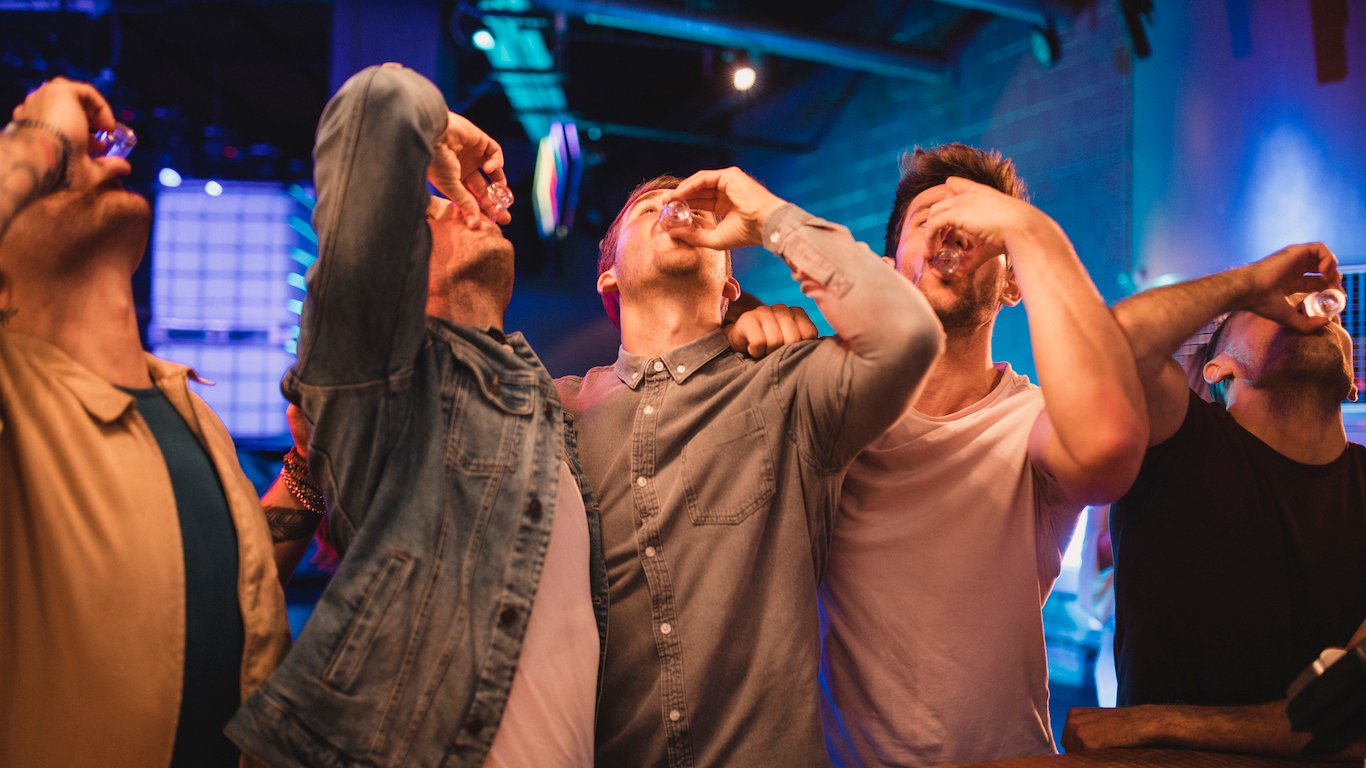
How this term became associated with inebriation is unknown. In Old English it was a variation on “freed” — perhaps adopted for this particular meaning in the sense of release from the strictures of polite society.
Hammered
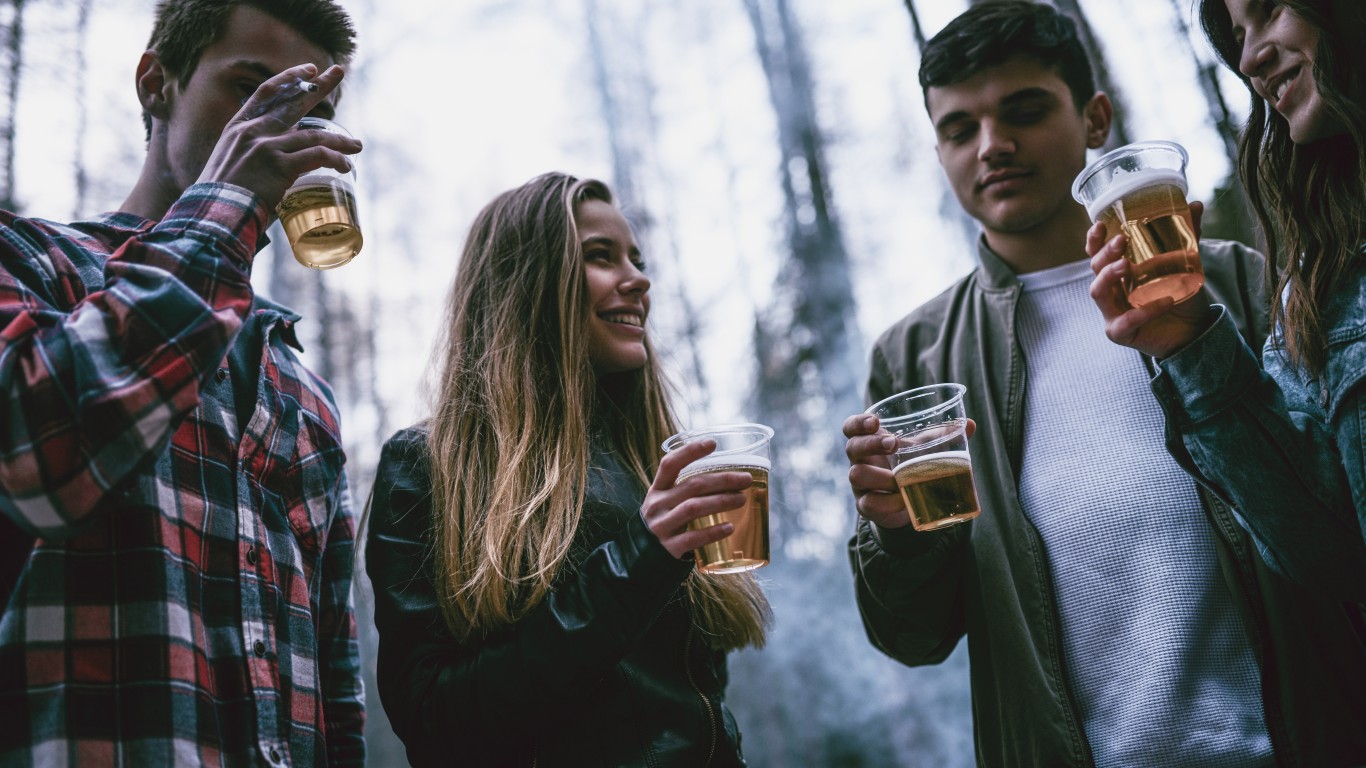
The Texas singer-songwriter Joe Ely has a song called “Everybody Got Hammered,” in which he sings “Everybody down the hall / Got nailed to the wall.” That’s a pretty graphic description of the way too much booze can make you feel.
Legless
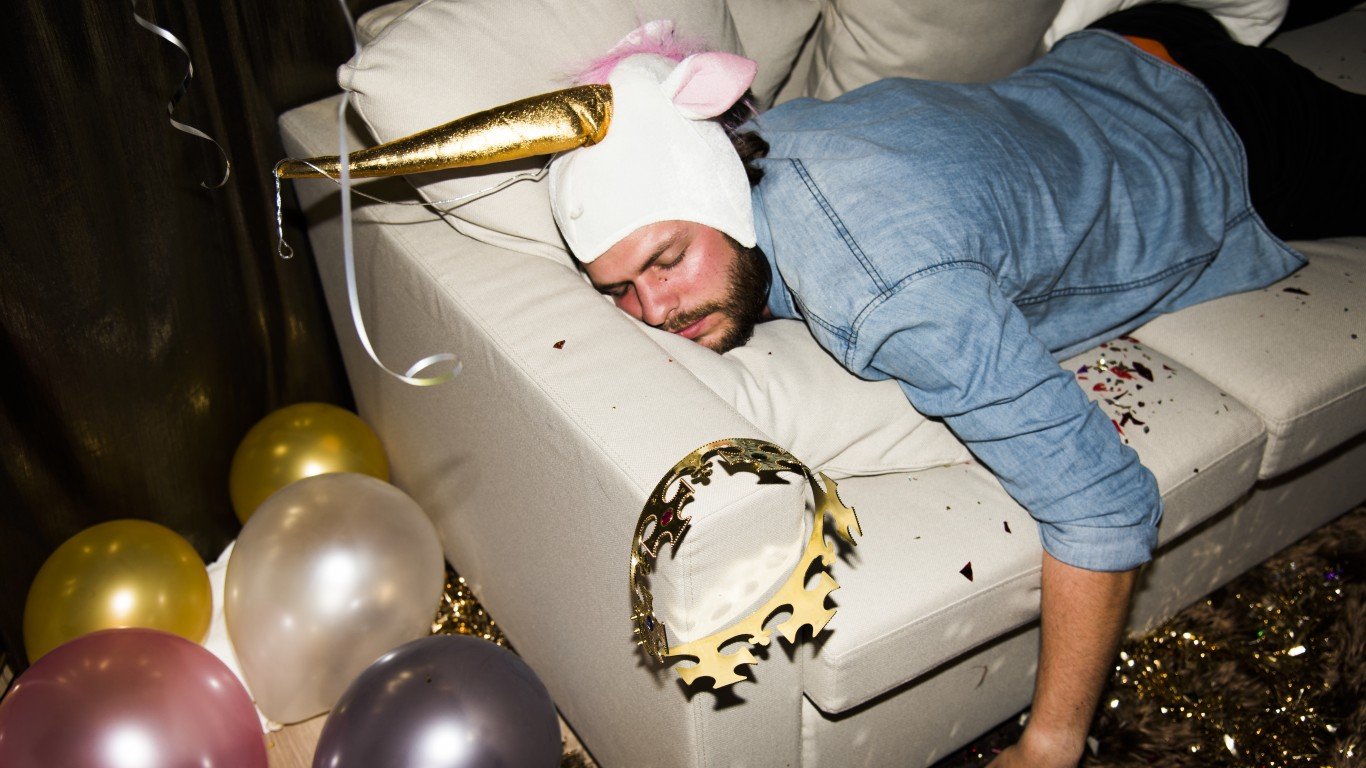
Try standing up too fast when you’ve been drinking a lot and this term will make a lot of sense.
Loaded

“Overloaded” (with alcohol) might be a more appropriate word.
Pickled
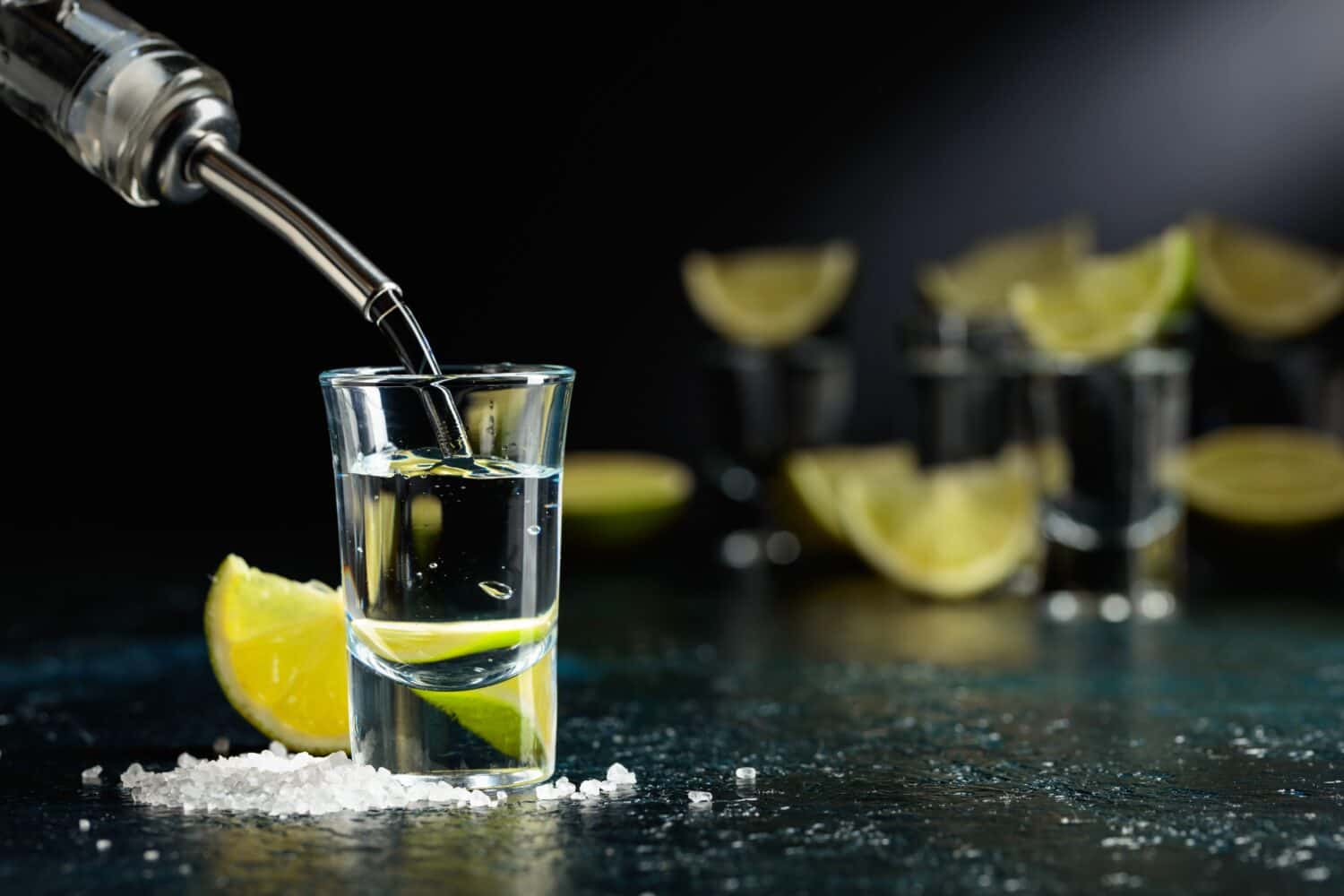
When something is pickled, it’s preserved in alcohol or in alcohol’s acetic cousin, vinegar.
Plastered
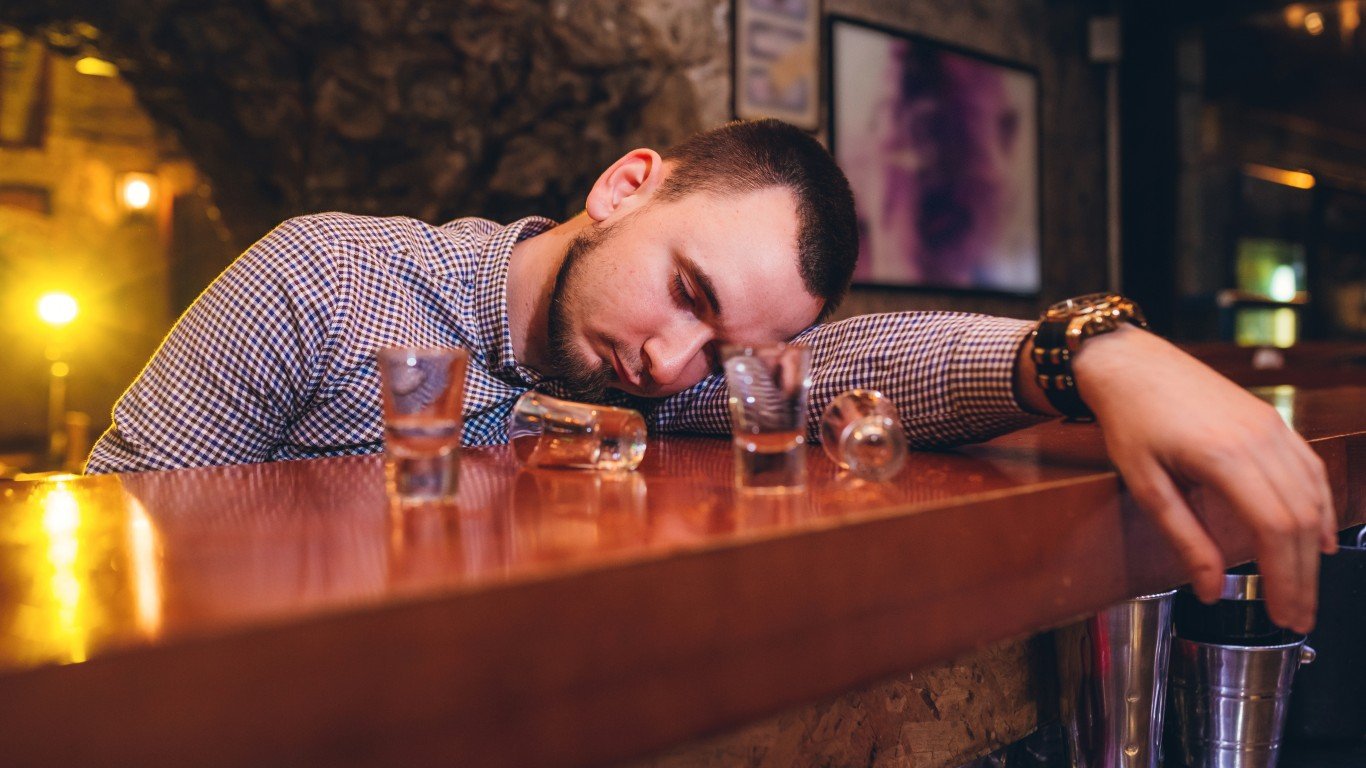
Presumably, when you’re plastered from drink, you’re as immobile as if you’d been coated with a cement-like substance.
Sloshed
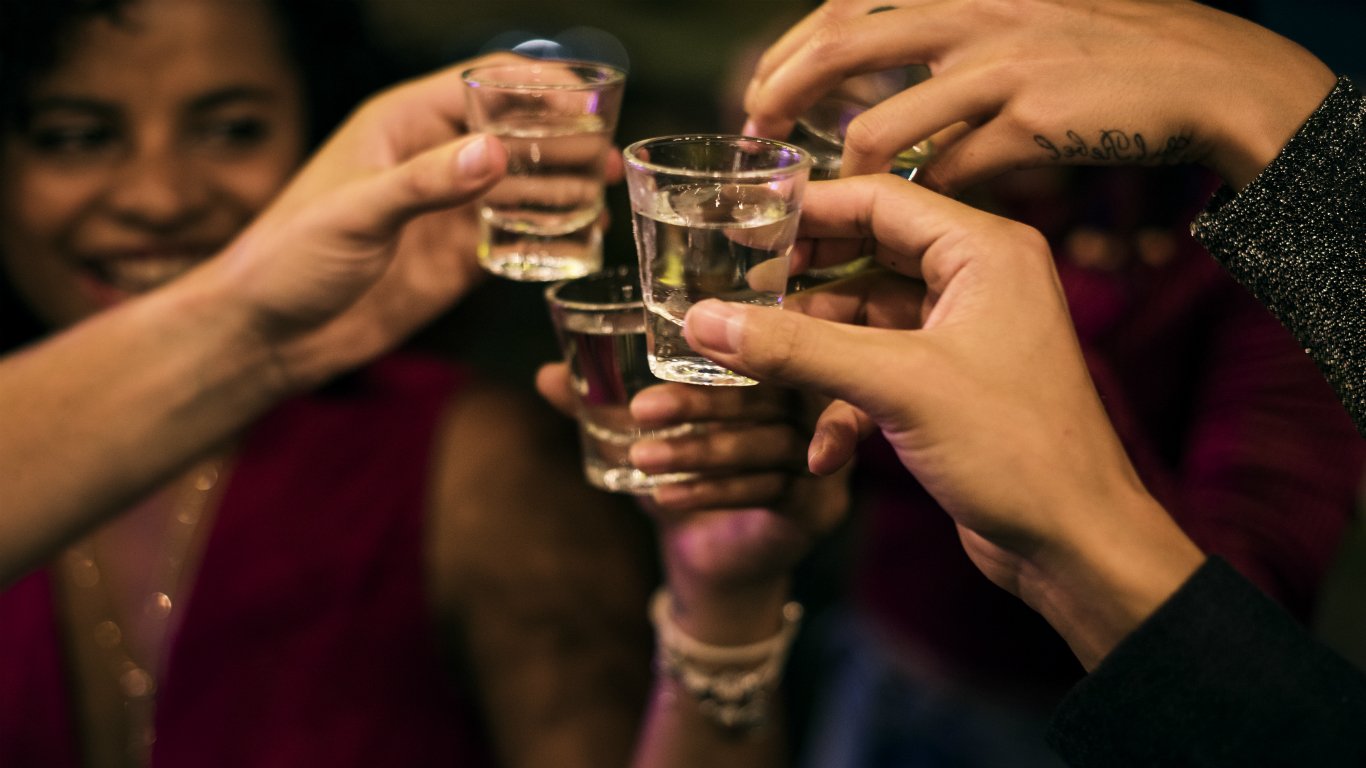
To slosh is to pour liquid carelessly, to splash it. Sloshed people are those who have obviously been pouring certain liquids carelessly down their throats.
Sozzled
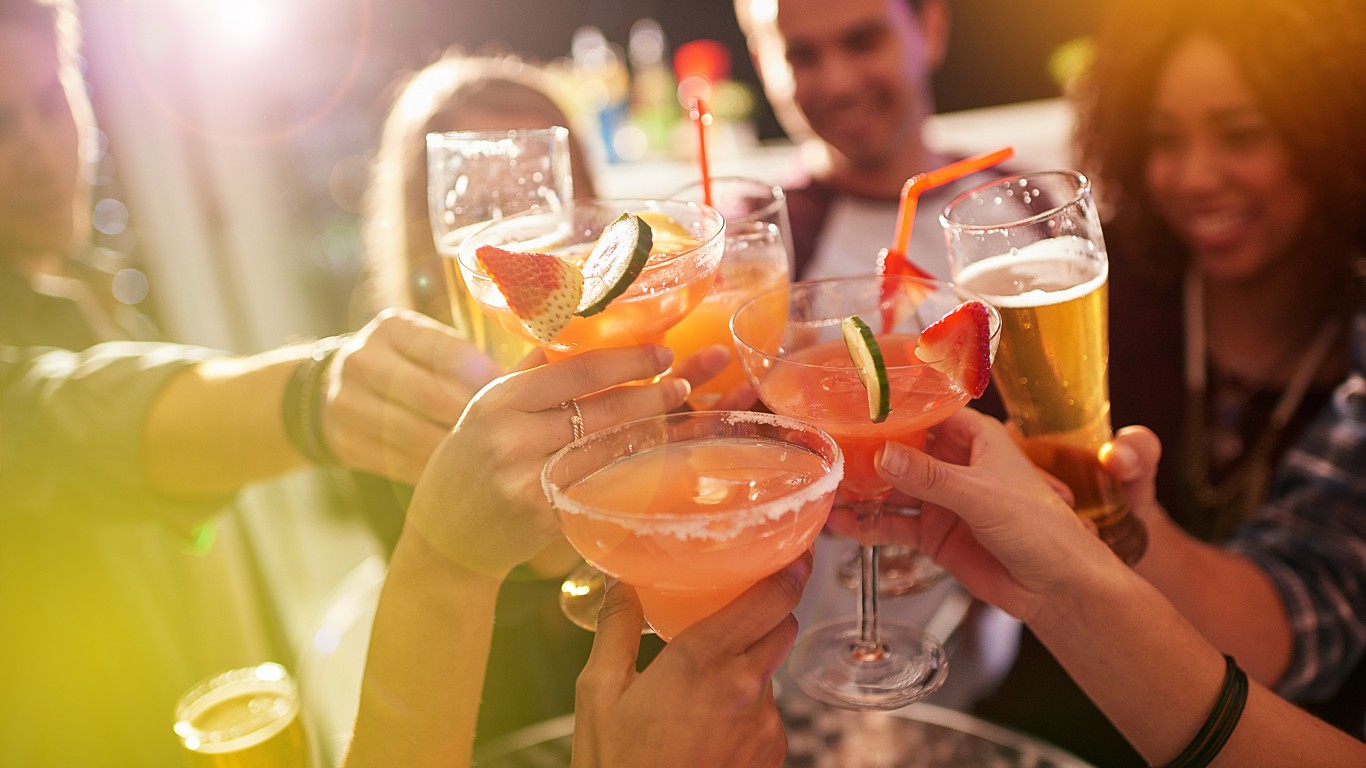
A relative of “slosh,” “sozzle” (originally spelled “sossle”) means to splash or to wash by splashing. The term’s relation to sloppy drinking is clear.
Smashed
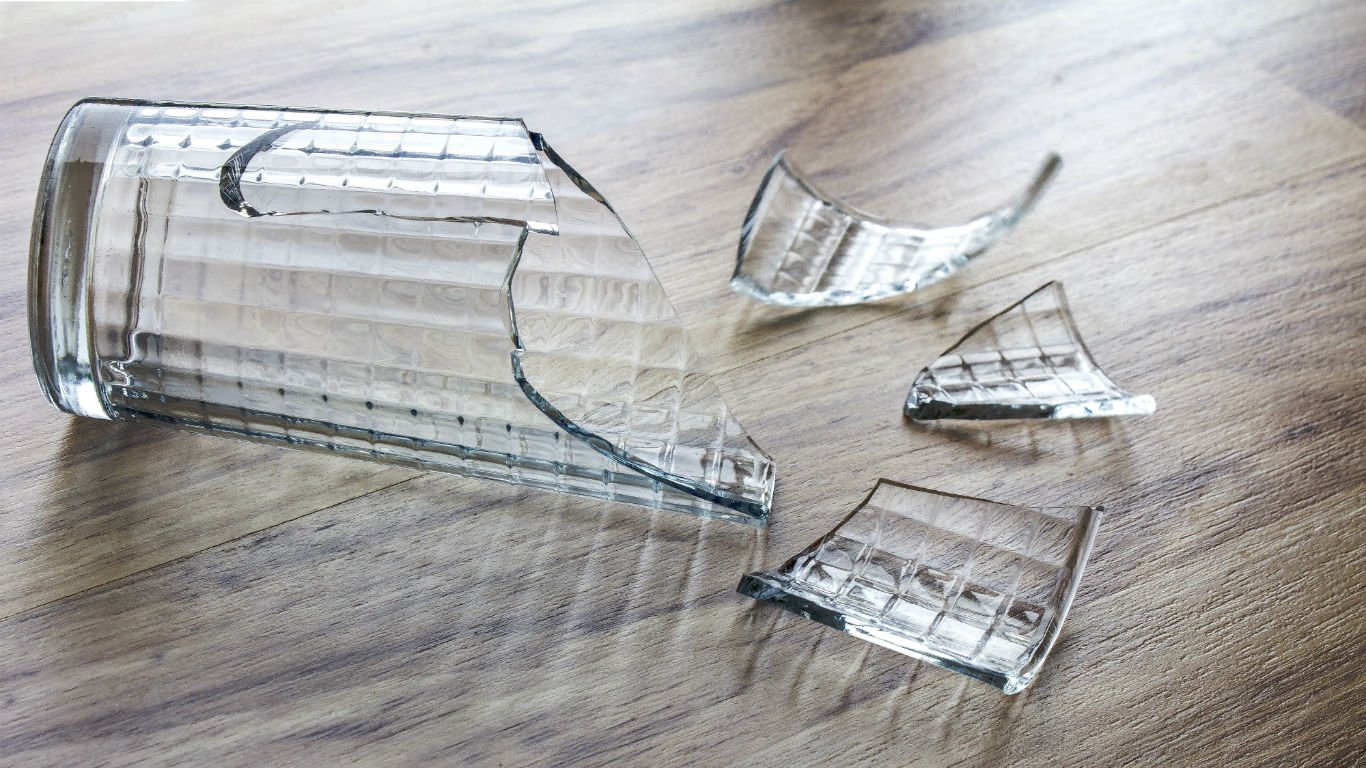
If you’re smashed, you’re broken into pieces, no longer a functioning whole. See “Hammered,” above.
Stewed

This may be an abbreviation of an English saying dating back to the 1600s — “stewed in his own gravy,” meaning “bathed in his own sweat.” Or maybe it’s just a reference to being heated (i.e., flushed) from drinking.
Stoned
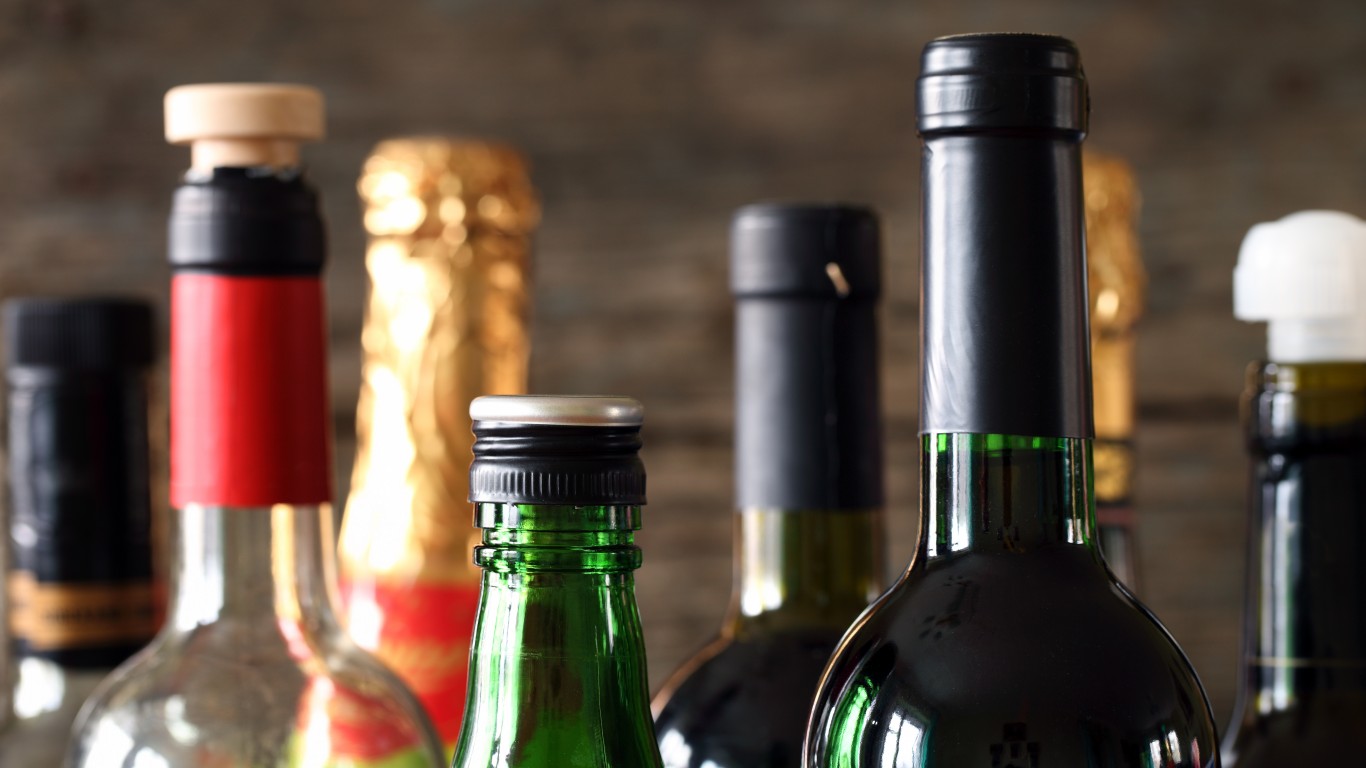
More commonly used these days to describe a state of drug-induced intoxication, the word was originally a reference to the blitzed- or bombed-like feeling one might get from overindulgence in alcohol.
Tight
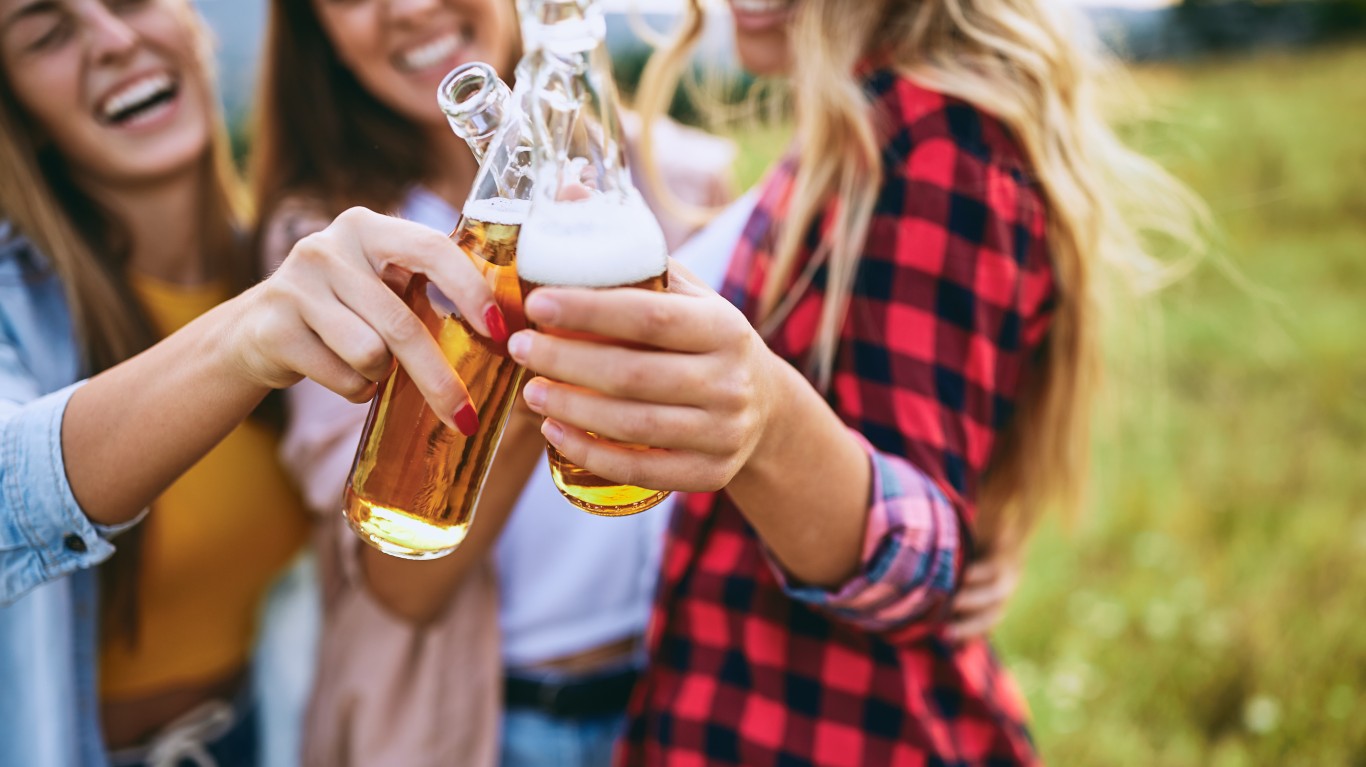
This might sound counterintuitive since many would describe achieving drunkenness as “getting loose,” but the word does convey a certain limitation of motor skills that alcohol might well induce.
Tipsy
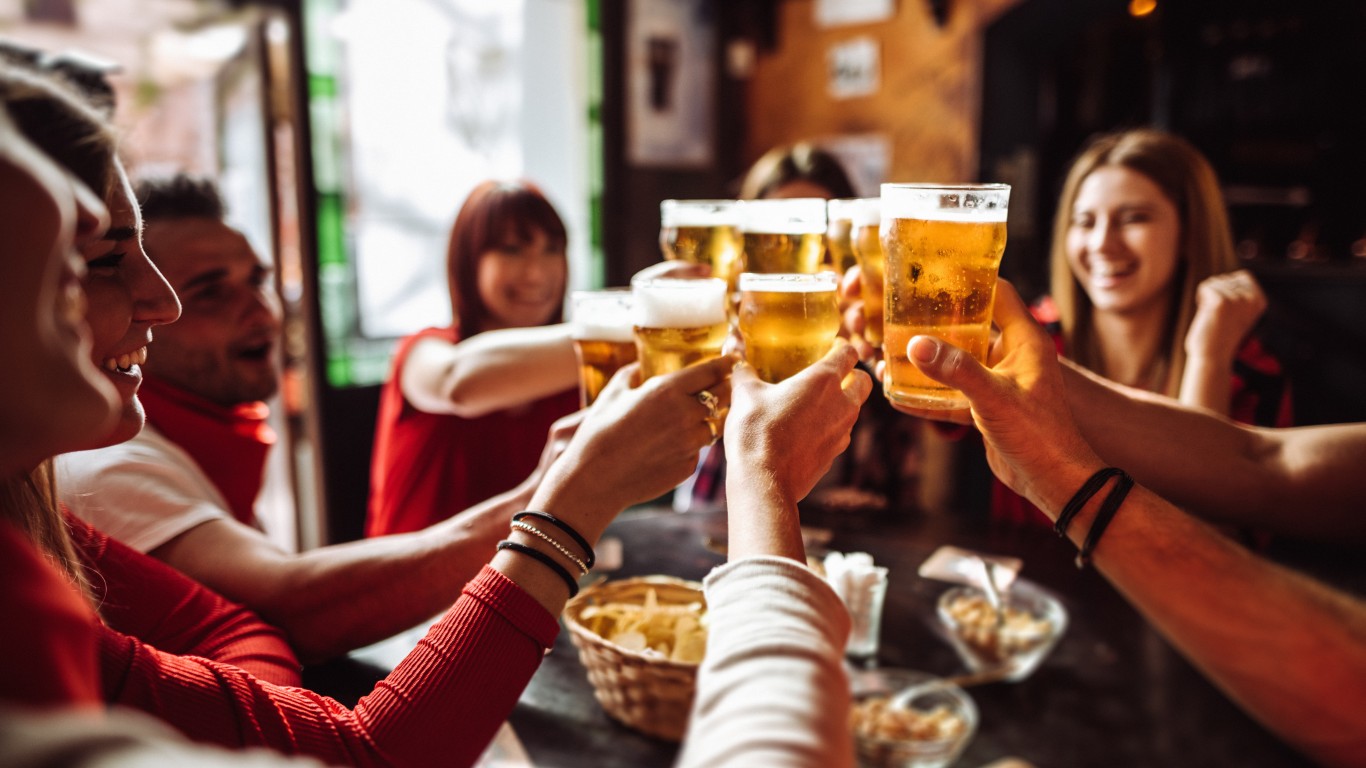
The OED dates the first use of this word to mean drunk back to 1577 (“About tenne of the clocke…they were some what tipsie”). It seems to derive from “tip,” in the sense of leaning or falling over.
Wasted
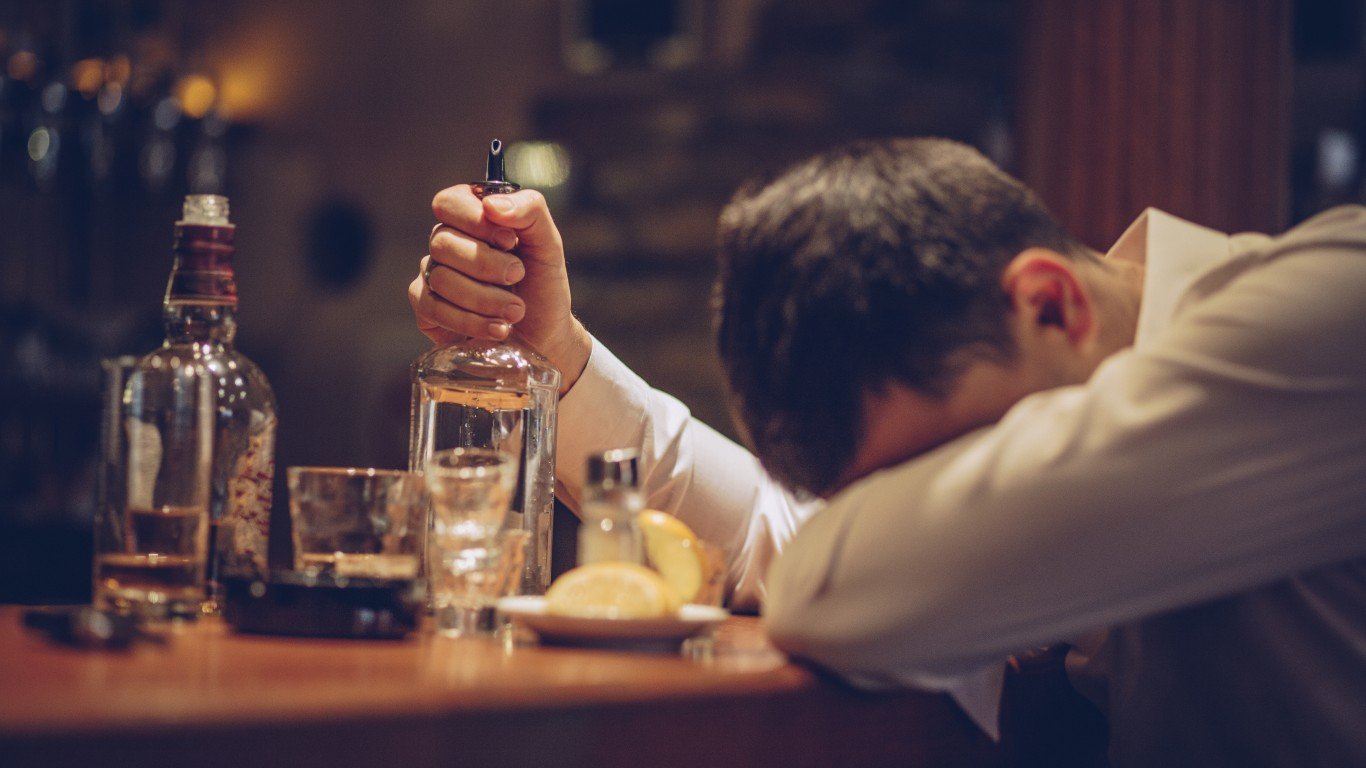
Finally, someone who’s wasted is worthless, of no use to anyone, a state that might well be inspired by having one too many.
Wrecked

See “Blitzed,” “Bombed,” “Hammered,” “Smashed,” etc. (Next, check out words that have different meanings from what you think.)
